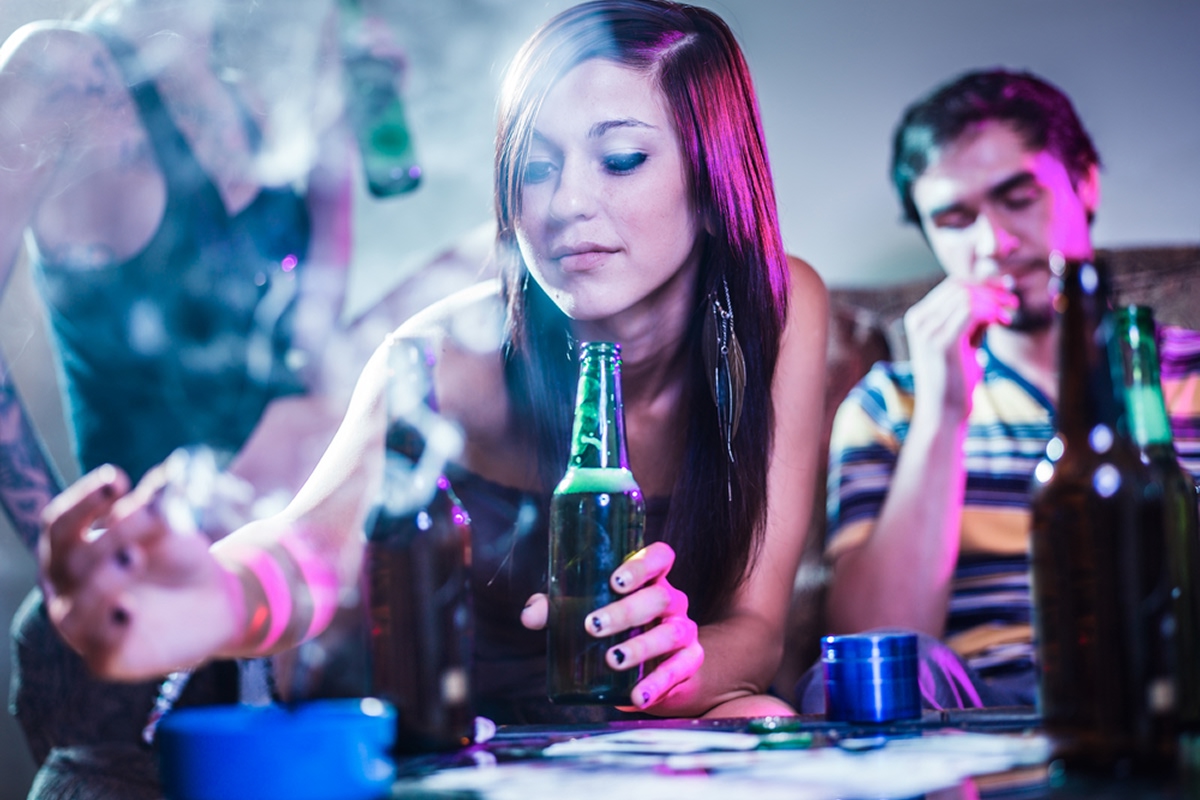Key Takeaways
- Cross fading means mixing alcohol with other substances, increasing risk of overdose and blackouts.
- Blackouts result from drinking too much alcohol, causing temporary memory loss and brain impairment.
- 12 South Recovery helps people heal from alcohol addiction and substance misuse through supportive, evidence-based care.
You’ve probably heard people say they got cross faded or blacked out after drinking and using other substances. These terms might sound casual, but they describe real and dangerous effects on your body and mind. Mixing alcohol with drugs can quickly lead to confusion, loss of control, or memory gaps. What starts as fun can turn risky fast. Knowing what these experiences really mean can help you stay safe and make better choices. At 12 South Recovery, we help people who’ve found that casual drinking or substance use has become something more serious.
What Does Cross Faded Mean?
Being cross faded means using alcohol and another drug at the same time, most often marijuana but sometimes prescription drugs or other substances. This combination affects how your brain and body process each chemical, intensifying the effects of both.
For example, alcohol is a depressant, it slows your brain and reflexes, while marijuana can act as both a depressant and mild hallucinogen. Together, they can cause confusion, dizziness, and severe loss of coordination.
Some people say being cross faded feels fun or relaxing at first, but it can quickly turn unpleasant or even dangerous. Because alcohol changes how your body absorbs other drugs, it’s easy to consume too much without realizing it.

What Does Being Cross Faded Feel Like?
Being cross faded feels different for everyone, depending on what substances are used and how much. Typically, people experience:
- Slowed reaction time
- Difficulty focusing or speaking
- Feeling “spaced out” or detached
- Nausea or dizziness
- Mood swings or sudden anxiety
In more severe cases, people may vomit, faint, or have blackouts and lose chunks of time they can’t remember later.
What starts as “taking the edge off” can easily turn into losing control of your body and actions. It’s one reason mixing substances is one of the biggest risk factors for overdose and alcohol-related accidents.
How Long Does Cross Faded Last?
The effects of being cross faded can last anywhere from a few hours to most of a day, depending on:
- How much alcohol and drugs were used
- Your body weight and metabolism
- Whether you ate before drinking or using
Since both alcohol and THC (the active chemical in marijuana) are processed through the liver, they stay in your system longer when used together. For some, the lingering effects, like brain fog or fatigue, can last until the next day.
It’s not uncommon for people to feel disoriented or emotionally drained even after sobering up. That’s because your brain chemistry is trying to rebalance after being overwhelmed.
What Are Blackouts?
A blackout happens when your brain can’t form or store new memories because of high levels of alcohol in your system. You may appear awake and functioning but later have no recollection of events.
This isn’t the same as passing out. Your body keeps moving, talking, or even driving, but your brain isn’t recording what’s happening.
Blackouts typically occur when blood alcohol concentration (BAC) reaches 0.16% or higher, about double the legal driving limit. At that point, alcohol suppresses the hippocampus, the part of the brain responsible for memory formation.
What Does Getting Blacked Out Feel Like?
For many people, getting blacked out doesn’t feel much different while it’s happening. You might feel euphoric, uninhibited, or overly confident. You might also slur your words, stumble, or make risky decisions.
But afterward, you wake up confused, embarrassed, or even scared. Friends might tell you what you did, and you have no memory of it. Some describe it as “losing hours of their life” with no explanation.
Repeated blackouts are a serious warning sign of alcohol abuse or alcohol addiction, as they show your brain and body are being pushed beyond safe limits.
How Long Do Typical Blackout Episodes Last?
Blackout episodes can last from a few minutes to several hours, depending on how much alcohol was consumed and how quickly. The more you drink in a short time, the more likely you are to experience long memory gaps.
While you may regain full consciousness later, your brain cannot recover those lost memories, they were never recorded in the first place. Over time, repeated blackouts can cause long-term cognitive damage, including memory issues, depression, and anxiety.
Cross Fading vs. Blackouts: What’s the Difference?
While cross fading and blackouts are related, they’re not the same. Cross fading refers to mixing substances, while blackouts involve losing memory due to extreme intoxication. The two can overlap, people who are cross faded are far more likely to experience blackouts or overdoses.
Cross Fading vs. Blackouts
| Factor | Cross Fading | Blackouts |
| Definition | Mixing alcohol with another substance (usually marijuana or prescription drugs) | Loss of memory during heavy alcohol intoxication |
| Cause | Alcohol intensifies the effects of other substances | Alcohol blocks the brain’s ability to form new memories |
| Symptoms | Confusion, impaired balance, nausea, poor coordination | No memory of events, slurred speech, risky behavior |
| Duration | Several hours depending on intake | Minutes to hours depending on BAC levels |
| Risks | Overdose, vomiting, severe intoxication, accidents | Memory loss, injury, long-term brain damage |
| Connection | Cross fading increases the chance of blackouts | Blackouts can occur after cross fading or heavy drinking |
Both are red flags that the body has had more than it can safely handle. While one might seem “fun” in the moment, the aftermath can be dangerous and emotionally draining.
Why Cross Fading and Blackouts Are Dangerous
Mixing substances or drinking heavily puts serious strain on your body, especially your liver, heart, and brain. The combination can slow breathing, lower blood pressure, and in severe cases, stop vital functions altogether.
People who frequently get cross faded or experience blackouts are also at higher risk for:
- Addiction or dependence on alcohol or drugs
- Accidents or injuries while intoxicated
- Mental health issues, like anxiety or depression
- Relationship strain from unpredictable behavior
Even if it starts as a social habit, cross fading and blackout episodes can be early signs of alcohol abuse or a developing addiction.
Signs You May Need Help
It’s not always easy to tell when casual substance use has crossed the line. But there are clear signs to watch for:
- Drinking or using drugs more than you planned
- Forgetting what happened while under the influence
- Using substances to cope with stress or emotions
- Feeling guilt or shame after drinking
- Friends or family expressing concern
If these sound familiar, you may be dealing with more than just “partying.” Professional help can make recovery safer and far more effective.
How 12 South Recovery Can Help
At 12 South Recovery, we know that addiction often starts small. A few drinks here, mixing substances there, until it becomes a habit that feels impossible to break.
Our treatment programs are client-centered, focusing on the root causes of addiction, not just the symptoms. We offer:
- Detox for safe withdrawal management
- Residential treatment for structure and stability
- PHP and IOP programs for ongoing recovery
- CBT, DBT, EMDR, and group therapy to rebuild mental health
- Holistic and adventure therapy for whole-body healing
- Continuing care and alumni programs for long-term success
Our goal is to help you regain control, rediscover purpose, and build a fulfilling life free from drugs and alcohol.
Get Alcohol Addiction Treatment at 12 South Recovery
Being cross faded or blacked out is a sign that your body is under serious stress. Mixing alcohol and other substances can cause real harm and lasting emotional effects. If you’ve found yourself stuck in that cycle, you’re not alone, and things can get better. At 12 South Recovery, we help people find stability, healing, and strength to move forward. Call 12 South Recovery today to take the first step toward feeling better and living healthier.































